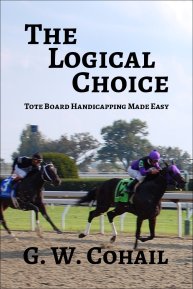 Horse racing as we know it relies heavily on the trainers who condition the horses we end up wagering money on, but, as a factor in your handicapping, how much importance should you place on them?
Horse racing as we know it relies heavily on the trainers who condition the horses we end up wagering money on, but, as a factor in your handicapping, how much importance should you place on them?
At the recently ended Del Mar meeting, John Sadler recorded the most wins, 27, primarily because he started the most horses, 151. Bob Baffert finished second in the standings with four-fewer wins, but he had 52 fewer starters. Jerry Hollendorfer finished third with 20 wins, and he, too, had fewer than 100 starters. Which trainer is better at his job?
That was a trick question because all three trainers are very competent at what they do or their names would not appear on the list. To give greater emphasis to one of them would be doing an injustice to the other two, and would be a mistake when it comes to handicapping a race.
There were 218 trainers who started one or more horses at Del Mar this year, and the overwhelming majority of them failed to visit the winner’s circle even once, including Vladimir Cerin, Jerry Fanning, Roger Stein, Ted West, and Jack Van Berg, all well-known and highly competent trainers.
In the end, it is not the trainer who wins the race, it is the horse he has trained, and truly bad trainers do not last in this business for long. To place this all in perspective, assume you are a champion pole vaulter, and you have employed the best trainer available in the North America to prepare you for the 2014 Olympics in Sochi. What are his chances of getting you to win a gold medal? While he might well be the best instructor, it is your physical prowess that will ultimately be the deciding factor. The same can be said about the top trainers of horses. An inferior horse is not likely going to beat a superior rival just because it has a well-known trainer.
If you took the time to conduct a thorough study, you would find that roughly 20% of all trainers win approximately 80% of all races. It is not because they are better trainers, but because their barns are filled with superior horses. The best trainers in the world lose many more races than they win, and the reason has nothing to do with their skills as trainers. It has to do with reality. Their charges faced superior competition on the days they lost.








